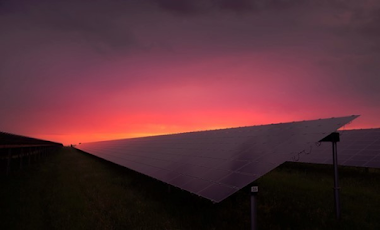DO SOLAR PANELS WORK IN COLD WEATHER?
Even in below-freezing weather, solar panels turn sunlight
into electricity. That’s because solar panels absorb energy from our sun’s
abundant light, not the sun’s heat. In fact, cold climates are actually optimal
for solar panel efficiency. So long as sunlight is hitting a solar panel, it will
generate electricity. Any diminished output during the winter months will
primarily be due to heavy snow and shorter daylight hours.
So, how do solar panels work? When sunlight photon particles hit solar panel photovoltaic cells, electrons in the silicon are put into motion. This creates an electric current, which is sent to your home’s electric distribution box to power your essential items. A rechargeable solar battery can help store this electricity so you can still use solar energy at night, during peak electricity usage, or when the grid goes down.
Remember how electrons move around atoms? Electrons are at low energy in cooler temperatures. When these electrons are activated by
increasing sunlight (high energy), a greater difference in voltage is attained
by a solar panel, which creates more energy. That’s why solar cells produce
electricity more efficiently when it’s colder.
when it’s cold ,it is also less likely for solar panels to reach their peak temperature, or peak power. Once their temperature rises above that peak temperature, solar panel performance decreases.
Research has demonstrated that panels begin losing efficiency around 77ºF.However, this diminished efficiency is balanced out thanks to more daylight hours during the spring and summer months.
Do solar panels work when it rains?
The sun still delivers daylight to solar panels through the rain and clouds. Although solar panels are most productive in direct sunlight, they can still use diffuse or indirect sunlight to generate energy. Rainy days and clouds cause diffuse light. But what’s the difference?
Direct light is solar radiation traveling in a straight line from the sun down to the earth’s surface. Diffuse light is sunlight that has been scattered by particles in the atmosphere yet still reaches the earth. Thus, the amount of electricity generated is dependent on the density of cloud cover. Though energy production decreases with increasingly dense cloud cover, panels continue working to a greater capacity than one may expect. Rain also helps wash away dust on panels to keep them operating efficiently.
Installing a grid-connected, rooftop solar panel system with battery storage can give you clean, renewable back-up electricity so you can power through the next blackout. We’ve seen that solar panels are incredibly resilient in the face of extreme weather conditions. By pairing your panels with a solar battery, you can store up your sunny days for a stormy one.
It's time time to go solar , While solar panels and battery storage can be a significant investment, Pontus Technology Limited offers stress-free and reliable Solar services.
We are located at O'neal Centre, plot 360. Obafemi Awolowo way Jabi Abuja.
you can also reach us via call/whatsapp 07031053693, 08032755412 .
For more information visit our website www.pontustechnology.com
.....your comfort, our priority



Comments
Post a Comment